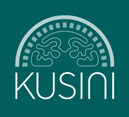Ecuador’s award-winning ecotourism company, Tropic, recently added a second train to its portfolio of ways to explore Ecuador.
Called Tren de la Libertad (Freedom Train), the new route highlights landscapes in and around Otavalo, a market town rife with produce, animals, textiles and handicrafts as well as the smiles and chatter of its mainly indigenous people, the Quichua. Since pre-Inca days, Otavalo has been an important crossroads to the Andes; now this is where 28 guests may access the train for a high-altitude adventure pulled by a modern electro-diesel locomotive.
As with Ecuador’s other famous train, Tren Crucero (Cruise Train), a colonial motif presides surrounding cushioned seats and large windows for viewing. Tren Crucero,entered Tropic’s portfolio in 2013 offering a four-day/three-night journeys from Quito to Quayquil on the Pacific coast. Ask your Tropic consultant or the Kusini Collection for more information.
The trip embracing Tren de la Libertad spans two days and one night at $640 per person double. This includes transfers to and from Quito to meet and depart the train and sightseeing transfers en route, a hosted tea, lunches, accommodation for one night and guide services.
On Day 1 guests are chauffeured early morning from Quito; in just over 90 minutes they climb 2,000 meters to 3,200 feet above sea level and into mountain ranges spliced with valleys that have been tilled for centuries. Arriving in Otavalo, guests may visit one of the country’s most visited sites, the craft market held daily at the foot of Mount Imbabura. Lunch follows in the artisan town of Cotacachi, famous for leather work and for Cuicocha Lake, a crater lake at the foot of Cotacachi Volcano.
Afternoon tea follows at Casa Mojanda Mountainside Inn overlooking Otavalo in the foothills of Mount Mojanda. An on-own dinner precedes bon nuit. This eco lodge offers bungalows constructed with adobe, non-endangered tree species and other sustainable materials. From here guests may hike to the lakes of Mojanda, horseback ride and mountain bike.
Day 2 brings guests by van and train from Otavalo to Ibarra and Salinas, waving enroute to people displaying handicrafts and textiles in the indigenous towns of Peguche, Quinchuqui and Iluman. The first stop is San Roque where from fiber derived from an agave, pita fiber bags are traditionally made for the transportation and storage of coffee and cocoa (sent by train to Guayaquil during the agro exportation boom of the mid-20th century). Andrade Marin is a short stop for a visit to the Textile Museum of the old Imbabura Factory, a faithful testament to the Industrial Revolution in Ecuador and its legacy for defending workers’ rights. Additional passengers board during the stop at Ibarra station enroute to Salinas. While descending 600 meters, passengers come to understand that building – by hand — the tunnels and bridges through this turbulent landscape was an engineering miracle.
Crops, cattle farms and stands of sugarcane zip by before a short stop at the Hoja Blanca Station to visit the Yachay interpretation centre, in the “city of knowledge”. Upon arriving in Salinas, guests enjoy a presentation of Afro-Ecuadorian dance with “Bomba” music, traditional to the “Valle del Chota” area. A hosted lunch featuring regional preparations and ingredients follows before an escorted drive back to Quito.
About Tropic
Established in 1994, Tropic is an award–winning ecotourism company specializing in responsible, community-based tourism in Ecuador. Programs combine life-changing, active-but-cultural ecotourism experiences focusing on nature, conservation, diversity and sustainability. Tropic was the honored recipient of National Geographic Society’s 2015 National Geographic World Legacy Award for its work with Engaging Communities in both the Amazon and Galapagos.





Leave A Comment
You must be logged in to post a comment.